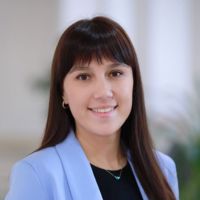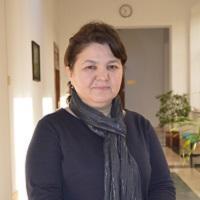GLOBAL ENGLISH CLUSTER
Online Teaching and Learning
Observations show that online teaching and learning in higher educational context is an underexploited research area. Therefore, Online Teaching and Learning (OTL) cluster sets as a goal to study social- economic, pedagogic aspects of OTL, quality assurance of OTL by measuring its effectiveness using Community of Inquiry Framework, problems both educators and students face during online classes and online professional development activities. The OTL researchers group aims to propose an effective approach to deliver online classes in the context of higher education in Uzbekistan which ensures that students experience a meaningful and effective online learning.
Observations show that online teaching and learning in higher educational context is an underexploited research area. Therefore, Online Teaching and Learning (OTL) cluster sets as a goal to study social- economic, pedagogic aspects of OTL, quality assurance of OTL by measuring its effectiveness using Community of Inquiry Framework, problems both educators and students face during online classes and online professional development activities. The OTL researchers group aims to propose an effective approach to deliver online classes in the context of higher education in Uzbekistan which ensures that students experience a meaningful and effective online learning.
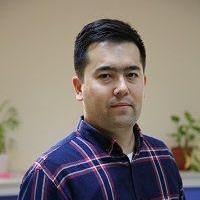
Cluster Members
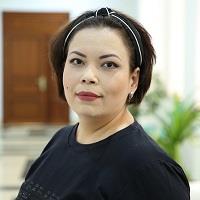
Aripova Elena Ph.D
Senior Lecturer
Senior Lecturer
Email: earipova@wiut.uz

Rustamova Nigina
Lecturer
Lecturer
Email: nrustamova@wiut.uz

Kiriaki Kanakidi
Lecturer
Lecturer
Email: kkanakidi@wiut.uz

Kosimov Alisher
Associate Lecturer
Associate Lecturer
Email: al.kosimov@wiut.uz
Academic Language and Skills
To promote quality learning and have qualified graduates, it is very important to detect whether the academic language proficiency of students at higher education institutions is sufficient to achieve academic success. The cluster focuses on approaches to investigating students' problems in academic language skills and suggesting viable solutions for their enhancement in tertiary education. It also studies the essential characteristics of academic language and style, the relationship between academic knowledge and students’ performance, and learners' skills in incorporating sources in their academic writing.
To promote quality learning and have qualified graduates, it is very important to detect whether the academic language proficiency of students at higher education institutions is sufficient to achieve academic success. The cluster focuses on approaches to investigating students' problems in academic language skills and suggesting viable solutions for their enhancement in tertiary education. It also studies the essential characteristics of academic language and style, the relationship between academic knowledge and students’ performance, and learners' skills in incorporating sources in their academic writing.
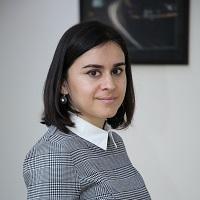
Cluster Members
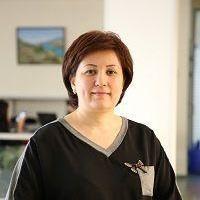
Akbarova Saida
Senior Lecturer
Senior Lecturer
Email: sakbarova@wiut.uz
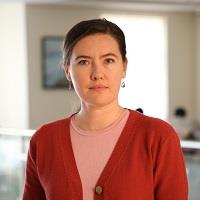
Makovskaya Liliya
Senior Lecturer
Senior Lecturer
Email: lmakovskaya@wiut.uz
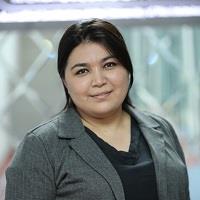
Saydazimova Iroda
Lecturer
Lecturer
Email: isaydazimova@wiut.uz
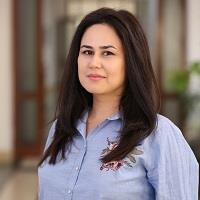
Begmatova Kholida
Associate Lecturer
Associate Lecturer
Email: kh.begmatova@wiut.uz
Internalization in Higher Education
Educational Landscape of Higher Education (HE) in Uzbekistan is changing dynamically due to reforms undertaken by the government of Uzbekistan. Because of a systematic approach in implementation of reforms in a short period of time the coverage of the population with higher education increased from 9 percent in 2016 up to 29 percent in 2021. Lately a decree of the President of The Republic of Uzbekistan was issued ‘On approval of the Concept of development of the higher education system of Uzbekistan until 2030’. This document defines pivotal goals regarding the development in the sphere of HE. Particularly, one of the high- stake goals is to expand the coverage of the population with HE up-to 50 percent. This will be done by strengthening public-private partnership in the sphere of HE, by establishing public and non-governmental institutions in the regions of Uzbekistan and by encouraging a healthy competitive environment in the field. Currently, the number of transnational institutions in Uzbekistan is surging year by year. Therefore, this particular research cluster is exploring internationalization of higher education in Uzbekistan which includes areas such as international student mobility, transnational higher education, international branch campuses, privatization of higher education, and the introduction of academic rankings of world universities. The research findings will help the HE actors to better react to the challenges which may be faced in a new environment, to support the smooth implementation of the governmental reforms in the field and encourage the exchange of expertise between local and international universities.
English as a medium of instruction (EMI) and its impact on internationalization of education is also part of this research cluster. The aim is to explore how EMI impacts quality assurance and policy development, pedagogy inside and outside of the classroom.
Educational Landscape of Higher Education (HE) in Uzbekistan is changing dynamically due to reforms undertaken by the government of Uzbekistan. Because of a systematic approach in implementation of reforms in a short period of time the coverage of the population with higher education increased from 9 percent in 2016 up to 29 percent in 2021. Lately a decree of the President of The Republic of Uzbekistan was issued ‘On approval of the Concept of development of the higher education system of Uzbekistan until 2030’. This document defines pivotal goals regarding the development in the sphere of HE. Particularly, one of the high- stake goals is to expand the coverage of the population with HE up-to 50 percent. This will be done by strengthening public-private partnership in the sphere of HE, by establishing public and non-governmental institutions in the regions of Uzbekistan and by encouraging a healthy competitive environment in the field. Currently, the number of transnational institutions in Uzbekistan is surging year by year. Therefore, this particular research cluster is exploring internationalization of higher education in Uzbekistan which includes areas such as international student mobility, transnational higher education, international branch campuses, privatization of higher education, and the introduction of academic rankings of world universities. The research findings will help the HE actors to better react to the challenges which may be faced in a new environment, to support the smooth implementation of the governmental reforms in the field and encourage the exchange of expertise between local and international universities.
English as a medium of instruction (EMI) and its impact on internationalization of education is also part of this research cluster. The aim is to explore how EMI impacts quality assurance and policy development, pedagogy inside and outside of the classroom.
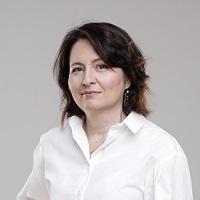
Cluster Members
Contemporary Methods in Teaching and Learning
The cluster is committed to studying and promoting effective teaching and learning methods that align with the evolving needs of learners in the 21st century.
The cluster is committed to studying and promoting effective teaching and learning methods that align with the evolving needs of learners in the 21st century.
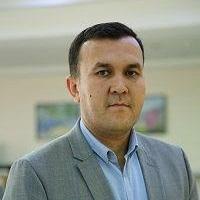
Cluster Members
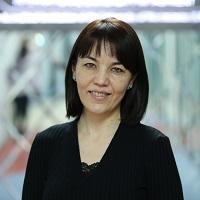
Tashpulatova Dildora
Lecturer
Lecturer
Email: dtoshpulatova3@wiut.uz
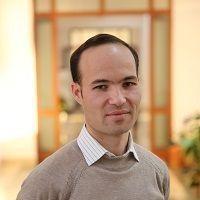
Kholmatov Aziz
Lecturer
Lecturer
Email: aholmatov@wiut.uz
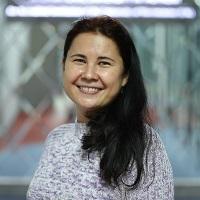
Kenjamuratova Aisulu
Lecturer
Lecturer
Email: akinjemuratova@wiut.uz
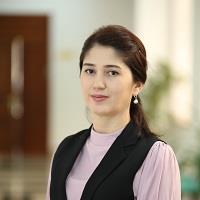
Rozikova Rano
Lecturer
Lecturer
Email: r.rozikova@wiut.uz
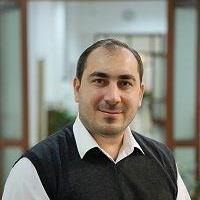
Asanov Alim
Lecturer
Lecturer
Email: aasanov@wiut.uz

Kosimov Alisher
Associate Lecturer
Associate Lecturer
Email: al.kosimov@wiut.uz
Inclusivity in Higher Education
In recent years, several positive changes took place in the context of higher education regarding inclusivity in Uzbekistan. Following the decree of the President of Uzbekistan dated December 1, 2017 “On measures to fundamentally improve the system of state support for persons with disabilities' ' physically challenged enrollees received special privileges when entering higher educational institutions. This cluster’s aim is to research to what extent higher educational establishments of Uzbekistan are ready to provide proper facilities, technologies, and resources to provide inclusive education. Also, the group is interested to find the answers to questions such as to what extent the teachers cope with the needs of physically challenged students, which methods they use to teach them and eventually, compare the obtained results to the practices applied in developed countries.
In recent years, several positive changes took place in the context of higher education regarding inclusivity in Uzbekistan. Following the decree of the President of Uzbekistan dated December 1, 2017 “On measures to fundamentally improve the system of state support for persons with disabilities' ' physically challenged enrollees received special privileges when entering higher educational institutions. This cluster’s aim is to research to what extent higher educational establishments of Uzbekistan are ready to provide proper facilities, technologies, and resources to provide inclusive education. Also, the group is interested to find the answers to questions such as to what extent the teachers cope with the needs of physically challenged students, which methods they use to teach them and eventually, compare the obtained results to the practices applied in developed countries.
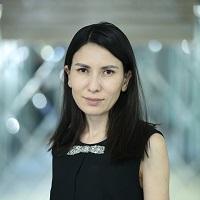
Cluster Members
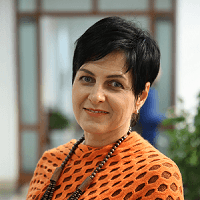
Volkova Elena
Course Leader
Course Leader
Email: evolkova@wiut.uz
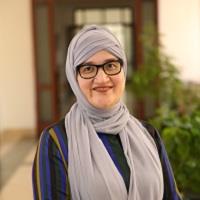
Isamukhammedova Nodira Ph.D
Senior Lecturer
Senior Lecturer
Email: nisamuxamedova@wiut.uz
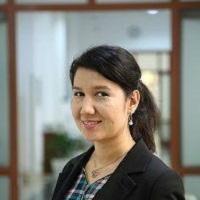
Uzakova Guljahon
Associate Lecturer
Associate Lecturer
Email: guzakova@wiut.uz
Second and Third Language Acquisition
Research examines the process by which individuals' acquisition of languages beyond the learner's first language has been established. It focuses on understanding the factors that influence language learning, such as age, linguistic aptitude, motivation, and instructional methods considering the potential influence of their prior language knowledge and proficiency. The purpose of research is to investigate various aspects, including the acquisition of vocabulary, grammar, phonetics, and sociocultural competence. Research explores the unique challenges and strategies involved in learning additional languages, including cross-linguistic transfer, language interference, and multilingual processing, and explores the techniques of developing linguistic skills through both formal instruction and naturalistic exposure to the target language. Additionally, research delves into the effects of individual differences, cognitive processes, and the role of input and interaction in language acquisition.
Research examines the process by which individuals' acquisition of languages beyond the learner's first language has been established. It focuses on understanding the factors that influence language learning, such as age, linguistic aptitude, motivation, and instructional methods considering the potential influence of their prior language knowledge and proficiency. The purpose of research is to investigate various aspects, including the acquisition of vocabulary, grammar, phonetics, and sociocultural competence. Research explores the unique challenges and strategies involved in learning additional languages, including cross-linguistic transfer, language interference, and multilingual processing, and explores the techniques of developing linguistic skills through both formal instruction and naturalistic exposure to the target language. Additionally, research delves into the effects of individual differences, cognitive processes, and the role of input and interaction in language acquisition.
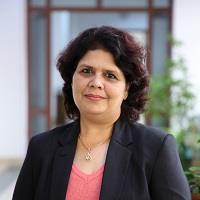
Cluster Members
Teacher Education and Teacher’s Research
Continuous professional development is substantial for the professional growth of the teachers and helps them to keep their skill and knowledge updated. Teachers, like other professionals, learn both consciously and unconsciously from experience, and they modify their practice to accommodate this learning. This process is autonomous and should be controlled by teachers themselves, though it relies on support from colleagues and education authorities. This view of CPD extends our understanding of what contributes to CPD in teachers, from a narrow view focussed on events such as conferences and training courses to a much wider view encompassing a wide range of development-oriented activities such as peer observation and feedback or conducting research into practice. Thus, teachers’ professional development happens not only in forums, conferences, and special professional development sessions in both face-to face and online modes. This cluster’s group of researchers study the ways teachers engage in CPD and the benefits they gain from this process. Besides, this cluster explores how teacher education programmes can be adapted to nurture the motivation for further CPD.
Continuous professional development is substantial for the professional growth of the teachers and helps them to keep their skill and knowledge updated. Teachers, like other professionals, learn both consciously and unconsciously from experience, and they modify their practice to accommodate this learning. This process is autonomous and should be controlled by teachers themselves, though it relies on support from colleagues and education authorities. This view of CPD extends our understanding of what contributes to CPD in teachers, from a narrow view focussed on events such as conferences and training courses to a much wider view encompassing a wide range of development-oriented activities such as peer observation and feedback or conducting research into practice. Thus, teachers’ professional development happens not only in forums, conferences, and special professional development sessions in both face-to face and online modes. This cluster’s group of researchers study the ways teachers engage in CPD and the benefits they gain from this process. Besides, this cluster explores how teacher education programmes can be adapted to nurture the motivation for further CPD.

Cluster Members

Volkova Elena
Course Leader
Course Leader
Email: evolkova@wiut.uz

Babakhadjaeva Lobar DSc
Associate Professor
Associate Professor
Email: lbabakhodjaeva@wiut.uz

Asanov Alim
Lecturer
Lecturer
Email: aasanov@wiut.uz
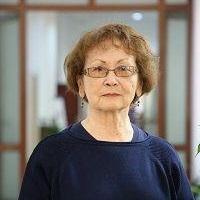
Ziryanova Rozaliya
Lecturer
Lecturer
Email: rziryanova@wiut.uz
Contemporary Literature and Comparative Literature
The aim of this research cluster is to investigate how the world literature had an influence on the late 19th and early 20th centuries Central Asian writers/poets. It explores Jadidism, Jadid writers/poets of Turkistan/Central Asia, Literature and National Identity formation. Another area of research within this cluster is to investigate how young adults, and their problems are reflected in contemporary American literature.
The aim of this research cluster is to investigate how the world literature had an influence on the late 19th and early 20th centuries Central Asian writers/poets. It explores Jadidism, Jadid writers/poets of Turkistan/Central Asia, Literature and National Identity formation. Another area of research within this cluster is to investigate how young adults, and their problems are reflected in contemporary American literature.
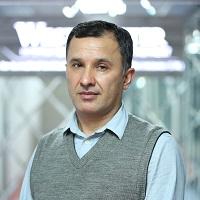
Effective Integration of Artificial Intelligence technologies into Teaching and Learning
This cluster explores the usage of artificial intelligence in education. Specifically, it researches the perception of artificial intelligence use from students’ and teachers’ perspectives, the potential benefits and limitations of implementing AI tools in educational settings, ethical issues related to the usage of AI tools, and the effective utilization of AI tools for education-related purposes.
This cluster explores the usage of artificial intelligence in education. Specifically, it researches the perception of artificial intelligence use from students’ and teachers’ perspectives, the potential benefits and limitations of implementing AI tools in educational settings, ethical issues related to the usage of AI tools, and the effective utilization of AI tools for education-related purposes.

Cluster Members

Kurbaniyazov Israil
Lecturer
Lecturer
Email: ikurbaniyazov@wiut.uz

Rustamova Nigina
Lecturer
Lecturer
Email: nrustamova@wiut.uz

Holmatov Aziz
Lecturer
Lecturer
Email: aholmatov@wiut.uz

Jain Gunjan
Lecturer
Lecturer
Email: gjain@wiut.uz
History of English Language Teaching (ELT) in Uzbekistan
Due to the fact that English has become the most learned foreign language in Central Asia and Uzbekistan in particular, English language teaching has witnessed significant reforms which influenced the English Language Teacher Education. The history of ELT has not been the object of study. The analysis of scarce literature and ELT in Uzbekistan suggests that historical development of ELT is rarely based on empirical data. The focus of the present cluster will be on identifying trends and patterns in adoption of various teaching methods and approaches that were employed in ELT education at Higher Education Institutions that specialize in preparing the so-called philologists and English teachers throughout history (in Soviet time and independent Uzbekistan).
Due to the fact that English has become the most learned foreign language in Central Asia and Uzbekistan in particular, English language teaching has witnessed significant reforms which influenced the English Language Teacher Education. The history of ELT has not been the object of study. The analysis of scarce literature and ELT in Uzbekistan suggests that historical development of ELT is rarely based on empirical data. The focus of the present cluster will be on identifying trends and patterns in adoption of various teaching methods and approaches that were employed in ELT education at Higher Education Institutions that specialize in preparing the so-called philologists and English teachers throughout history (in Soviet time and independent Uzbekistan).
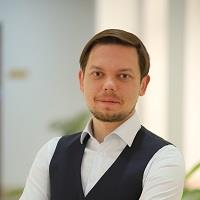
Cluster Members
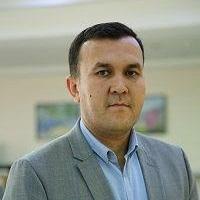
Urazbaev Khikmatullo Ph.D
Senior Lecturer
Senior Lecturer
Email: kurazbaev@wiut.uz

Mukhammedov Erkin
Senior Lecturer
Senior Lecturer
Email: emukhammedov@wiut.uz

